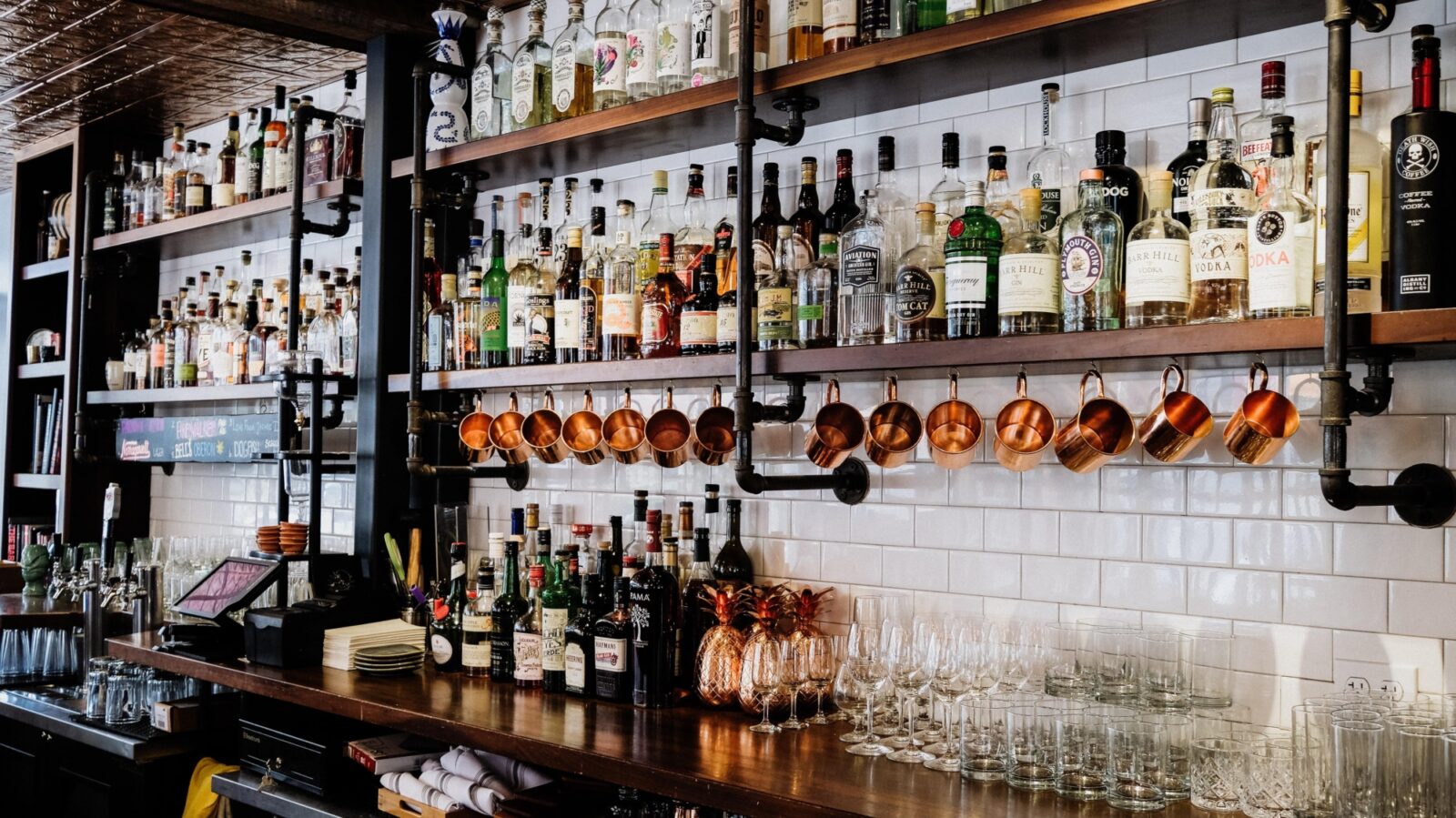Mobile Bar Business Licenses and Permits Needed in Arizona: How to Start a Mobile Bar Business
Jim McCormickAuthor
When you’re opening a mobile bar business, you’re going to need to get your licenses and permits in order before opening.
In order to be compliant with local laws, mobile bars in Arizona will need to get many of the same permits as restaurants, including a business license, food handlers permits for every employee, and a seller’s permit.
In addition to these, they’ll also need to get a mobile food facility permit and a liquor license.
As soon as you’ve secured funding with your thorough business plan, one of the next steps to get going on is your licenses and permits. Many of them can take weeks, if not months (or even longer), so getting started as early as possible can help prevent bumps in the road to opening your doors.
We’ll get into some of the most common licenses and permits needed in Arizona, what they are and why you need them, how to get them, and how much they cost.
Bar and Lounge POS Comparison Tool
A free, customizable Bar and Lounge POS Comparison Tool to research and compare point of sale systems in one Excel spreadsheet or editable PDF.

How to Open a Mobile Bar Business in Arizona
To ensure that the process of opening your bar is an efficient as possible we recommend you follow this sequence of steps.
- Create your bar business plan
- Find your food truck or where you will operate
- Create your bar menu
- Order your bar equipment
- Determine your suppliers, cost structure and pricing
- Decide on the design and atmosphere
- Obtain all necessary licenses and permits to operate your bar, in local compliance
- Select your restaurant technology options, point of sale in particular
For the last step, every mobile bar license and permit is unique and has its own application process. And each one takes varying amounts of time to secure, so in the process of opening your bar you’ll want to leave plenty of time to get the proper licenses and permits in place.
To simplify the licensing process we have created this guide to cover all the mobile bar licenses and permits you’ll need in Arizona.
Do you need a liquor license for a mobile bar?
Whether or not a mobile bar requires a liquor license depends on the regulations and laws of the specific location where the business operates. In many countries and states, serving alcoholic beverages typically necessitates obtaining a liquor license, regardless of whether the establishment is stationary or mobile.
The requirements and application process for obtaining a liquor license can vary widely from one jurisdiction to another. To determine the exact regulations and licensing requirements for a mobile bar, it is essential to research and consult the relevant local authorities and liquor control boards in the region of operation.
Licenses and Permits Required to Open a Mobile Bar in Arizona
- Business License
- Certificate of Occupancy
- Food Handler’s License, also known as Food Service License
- Seller’s Permit
- Liquor License Permit
- Mobile Food Facility Permit
- Public Health Permit
1. Business License in Arizona
What is it and why do you need it?
A business license is one of the first licenses you’ll need as you start laying the groundwork of your business. Also known as a business tax certificate, it helps your business stay compliant at tax season.
How to get a business license in Arizona
In Arizona, business licenses are controlled by the city or county you live in. If you operate a restaurant with multiple locations across cities and counties, it’s important to get a business license for each business in different jurisdictions. To get a business license in Arizona, you’ll need:
- An EIN
- To choose what classification of business you’ll be (LLC? Sole proprietorship? Partnership?)
- A business name
- An address and phone number,
- A thorough restaurant business plan
- A COI for your business insurance policy
How much does a business license cost in Arizona?
Arizona business license costs vary depending the county, type and scope of the business. Business licenses in Arizona need to be renewed and paid for regularly, so check with your jurisdiction about how often yours will need to be renewed.
2. Certificate of Occupancy in Arizona
What is it and why do you need it?
A certificate of occupancy is a document that shows your space is zoned for your type of business, as well as up to code, safe to use, and up to date on its checks and inspections. Not every county will require them for new businesses, and even then, only certain situations require them, including if you’re doing major building work or changing the use of a space from residential to business.
Always get in touch with your local jurisdiction to determine if your project warrants a CoO.
How to get a certificate of occupancy license?
The forms are online, but in order to get the certificate, your business location will need to go through fire inspections, plumbing inspections, electrical inspections, and building inspections. Check your local city or county’s building and safety department.
How much does a certificate of occupancy cost?
Different counties will charge different amounts, and they will also vary by type of business. Fee will vary depending on county.
3. Food Handler’s License in Arizona
What is it and why do you need it?
A food service license, also known as an employee health permit, allows restaurants, vendors, or any other type of food business to safely sell and serve food onsite. These licenses ensure that every employee knows how to do their part to keep your diners safe from foodborne illness. They’re often referred to as ServSafe, after the company that administers most food handler’s tests, or as an Arizona Food Handler Card.
How to get a food handler’s license in Arizona
Every employee who prepares or serves food in Arizona must get their Food Handler’s license within 30 days of being hired — chefs, cooks, servers, baristas, and bartenders, to name a few. Bussers and general managers may not be required to do so.
And if managers have already gotten their Food Protection Manager Certification, they’re also exempt from getting an Arizona Food Handler card. Some jurisdictions have their own food safety training programs and standards, so they’re exempt from requiring employees to get a Arizona Food Handler card.
To get their food handler’s card, employees must pass a test about food safety and preparation with a grade of at least 70% (or higher in some jurisdictions).
How much does a food service license cost in Arizona?
Arizona state law requires that the test and license not cost more than $15, in order to make sure anyone working in a restaurant can afford to get certified.
4. Food Seller’s Permit in Arizona
What is it and why do you need it?
Any business that plans to sell tangible goods that are subject to sales tax needs a seller’s permit. This permit allows them to charge sales tax.
How to get a seller’s permit?
You can register for a permit online through the Arizona Department of Revenue.
How much does a food seller’s license cost?
There’s no fee to apply for a seller’s permit, but you may be asked to pay a security deposit to cover unpaid taxes if the business eventually closes.
5. Mobile Liquor License in Arizona
What is it and why do you need it?
This license is required for any type of business to sell and serve alcohol to its patrons. Since alcohol has an incredibly high markup and a long shelf life, it’s often beneficial from a profit standpoint to sell alcohol.
How to get a liquor license in Arizona
In Arizona, liquor licenses are issued by the state, through the Arizona Department of Liquor. You must have a seller’s permit already to be able to apply for a liquor license.
After you’ve applied for a liquor license, you must post a public notice of application on your business’s premises for 30 days. Some cases require the applicant to notify their neighbors or post a notice in the newspaper. They will also need to show that their business is correctly zoned for an alcohol-selling business.
The department does an investigation into the future business and the applicant to see if they qualify. It takes between 30 and 90 days to process a liquor license application, depending on what kind of application it is, so be sure to build this time frame into your countdown to opening. Licenses are renewed on a yearly basis, so you must pay the renewal fee on time or your license will expire until the fee is paid.
How much does a liquor license cost in Arizona?
A liquor license in Arizona can cost from $2000 - $5000. See the full fees associated with different types of liquor licenses in Arizona here.
Restaurant Opening Calculator
This calculator lays out some of the fundamental financial costs of opening a restaurant, so you can start planning and bring your dream restaurant to life.

6. Mobile Food Facility Permit in Arizona
What is it and why do you need it?
A mobile food facility permit ensures that the space where you plan to prepare and/or serve food is compliant with local food safety and worker safety standards. You cannot operate a food truck, food cart, or any other kind of mobile food business without one.
How do you get a mobile food facility permit license?
Different counties will dictate the factors that need to be considered, including what types of foods are prepared on the truck vs. at an offsite prep kitchen, what types of foods are sold (and how high-risk they are in terms of potential to cause food-borne illness), what kind of cooking will be done on the truck (Deep frying? Griddle only? Microwaving?), and how much preparation will need to be done at all (very little for ice cream vs. a lot for burritos).
In order to be approved, a mobile food facility will need to be able to show they are creating a safe and nonhazardous work environment for their workers, providing safe food for their customers, and following safe protocols for disposal of grease and other waste.
How much does a mobile food facility permit cost?
The cost of a mobile food facility permit will vary across cities and counties, and even within a city depending on the type of food truck operation.
7. Public Health Permit in Arizona
What is it and why do you need it?
In most counties, food trucks will need to fill out a Public Health Permit/License application as food vendors, or risk being shut down for not being up to the Arizona Health and Safety Code.
How do you get a public health permit/license?
Fill out the application from your local public health department, prepare your facility for inspection, and review all food safety requirements. Once you’ve passed inspection, you can obtain your public health permit.
How much does a public health license cost?
It depends on your risk level — selling prepackaged food is cheaper, and less risky, than preparing meats and other foods on your premises. These license costs vary by county and can range from $100 to over $1,000.
Mobile Bar Laws, Requirements and Regulations in Arizona
In addition to all the above permits and licenses, mobile bars will need to comply with food safety ordinances, OSHA regulations, proper waste disposal regulations, driving regulations, public health laws, tax laws, regulations about temperature control for food (as well as for running water), parking regulations, drivers license laws, liquor laws, and many more.
Get ready to bring your food to whenever your customers are
Opening a mobile bar is a process that takes many months. You’ll need to start with a thorough bar business plan, and then, one of the most important tasks to tackle early is the licenses and permits process. Some permits will require you to have a different permit ready to submit with your application, so use the state specific websites to determine exactly which permits your business needs. Map out the requirements for all of them, and go through them in cascading order.
Once your permits are in progress, you can move onto other tasks that will require your attention, including finding a great team, planning your pay structures, finding funding, figuring out your menu and testing recipes, and choosing ingredient vendors.
Finally, you can compare your options for the best bar point of sale system. Ensure the platform you choose has capabilities that will help you grow sustainably for years to come, like online ordering (and order-ahead), email marketing to let your customers know where you’ll be and when, payroll, and inventory.
Is this article helpful?
DISCLAIMER: This information is provided for general informational purposes only, and publication does not constitute an endorsement. Toast does not warrant the accuracy or completeness of any information, text, graphics, links, or other items contained within this content. Toast does not guarantee you will achieve any specific results if you follow any advice herein. It may be advisable for you to consult with a professional such as a lawyer, accountant, or business advisor for advice specific to your situation.


